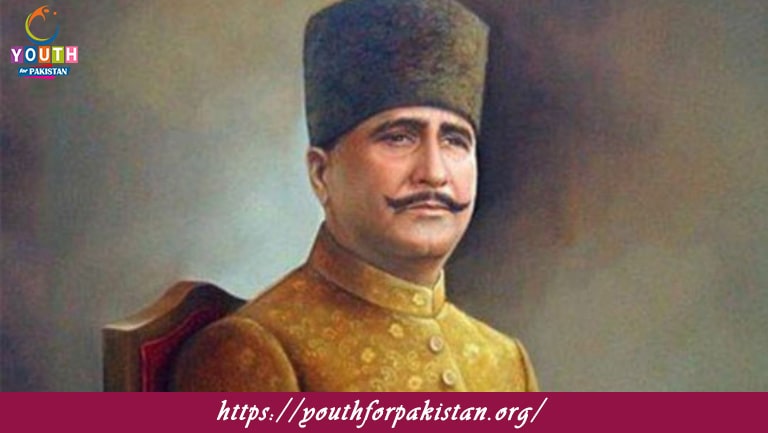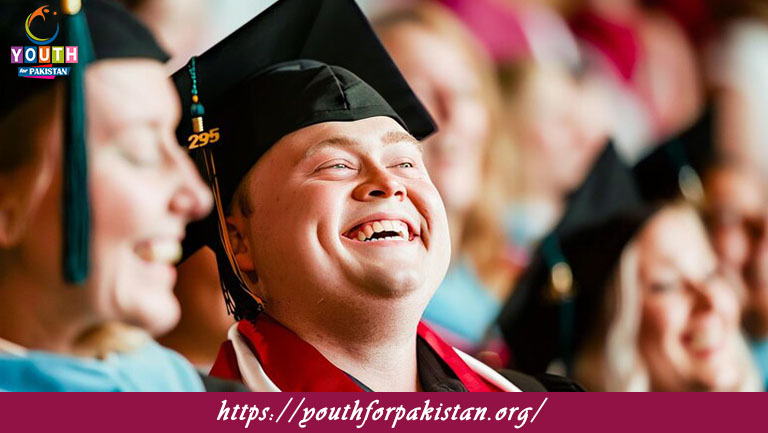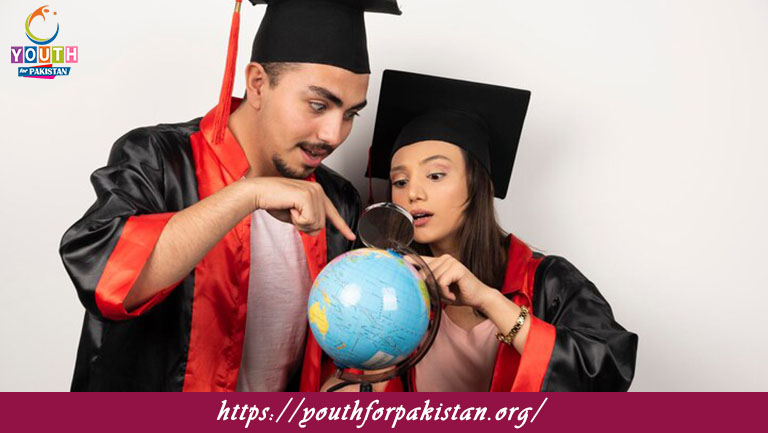Explore the life and philosophy of Allama Iqbal, Pakistan’s national poet. These MCQs cover his poetry, political vision, and contributions to independence.
Allama Iqbal’s ideology MCQs
Allama Iqbal was a renowned:
a) Politician
b) Philosopher
c) Scientist
d) Musician
Allama Iqbal was born in which city of British India?
a) Karachi
b) Lahore
c) Sialkot
d) Delhi
What is the full name of Allama Iqbal?
a) Muhammad Iqbal
b) Iqbal Ahmad
c) Sir Muhammad Iqbal
d) Allama Sir Muhammad Iqbal
Allama Iqbal is often referred to as the “Poet of the East” and also as:
a) The Sage of the East
b) The Voice of Freedom
c) The Father of the Nation
d) The Great Reformer
Which language did Allama Iqbal primarily use for his poetry and philosophical writings?
a) Urdu
b) Persian
c) English
d) Punjabi
Allama Iqbal’s poetry played a significant role in inspiring the creation of which nation?
a) India
b) Bangladesh
c) Pakistan
d) Afghanistan
Allama Iqbal’s poetry is known for its themes of:
a) Romantic love
b) Patriotism and spirituality
c) Environmental conservation
d) Social satire
Which famous poem by Allama Iqbal is often considered a milestone in Urdu literature and calls for the self-realization and unity of Muslims?
a) “Shikwa”
b) “Jawab-e-Shikwa”
c) “Bang-e-Dra”
d) “Tulu-e-Islam”
Allama Iqbal’s famous poem “Lab Pe Aati Hai Dua Ban Ke Tamanna Meri” is a prayer that children often learn in which language?
a) Persian
b) Urdu
c) English
d) Punjabi
What is the title of Allama Iqbal’s poetry book that includes his famous poem “Bang-e-Dra?
a) “Payam-e-Mashriq”
b) “Asrar-e-Khudi”
c) “Baal-e-Jibril”
d) “Armaghan-e-Hijaz”
Allama Iqbal was a strong advocate for the revival of which Islamic concept in the modern age?
a) Sufism
b) Shariah
c) Ijma
d) Ijtehad
In his famous poem “Lab Pe Aati Hai Dua Ban Ke Tamanna Meri,” what does the poet pray for?
a) Wealth and power
b) Worldly success
c) The welfare of his country and the Muslim community
d) Personal happiness
Allama Iqbal’s idea of “Khudi” emphasizes:
a) Selflessness and sacrifice
b) Self-realization and selfhood
c) Self-indulgence and pleasure
d) Self-deprecation and humility
What is the title of the famous Persian poem written by Allama Iqbal that calls for the unity of the Muslim world?
a) “Lab Pe Aati Hai Dua Ban Ke Tamanna Meri”
b) “Shikwa”
c) “Tulu-e-Islam”
d) “Payam-e-Mashriq”
Allama Iqbal’s poetry is often associated with the concept of “Iqbalism.” What does “Iqbalism” represent?
a) A literary movement
b) A school of philosophy inspired by his ideas
c) A specific form of Sufi poetry
d) A style of classical Persian poetry
Allama Iqbal’s concept of “Mard-e-Momin” refers to:
a) A self-realized and spiritually awakened individual
b) A devout Muslim
c) A powerful political leader
d) A Sufi saint
What is the primary theme of Allama Iqbal’s poem “Shikwa?
a) Patriotism
b) Spiritual awakening
c) Social injustice
d) A complaint to God
In the poem “Shikwa,” who is the speaker addressing his complaint to?
a) The rulers of India
b) The Muslim community
c) The British colonial authorities
d) God
Allama Iqbal was a prominent philosopher and thinker who emphasized the importance of:
a) Rigid conservatism
b) Sufi mysticism
c) Rationalism and modernity
d) Intellectual and spiritual revival
In his poem “Jawab-e-Shikwa,” Allama Iqbal provides a response to the complaints expressed in “Shikwa.” What is the central message of this response?
a) God’s infinite mercy and blessings
b) The need for Muslims to take responsibility for their own actions
c) The importance of political activism
d) The call for armed resistance against oppression
Which prominent philosopher greatly influenced the philosophical ideas of Allama Iqbal, particularly his concept of “Khudi”?
a) Immanuel Kant
b) Friedrich Nietzsche
c) Søren Kierkegaard
d) Jean-Jacques Rousseau
What is the title of Allama Iqbal’s famous Persian work that discusses the role of individual effort in achieving spiritual awakening and progress?
a) “Shikwa”
b) “Asrar-e-Khudi”
c) “Payam-e-Mashriq”
d) “Bang-e-Dra”
Allama Iqbal’s poetry and philosophical writings played a significant role in the intellectual and political awakening of Muslims in which region?
a) South Asia
b) Middle East
c) Southeast Asia
d) North Africa
Which of the following is a key concept in Allama Iqbal’s philosophy, emphasizing the inner journey of self-discovery?
a) Ijtihad
b) Iqbalism
c) Khudi
d) Sufism
Allama Iqbal’s vision for a self-realized Muslim community included the concept of “Mard-e-Momin.” What does this term mean?
a) A devout believer
b) A self-reflective and spiritually awakened person
c) A religious leader
d) A political leader
Allama Iqbal was a strong advocate for:
a) Secularism
b) Autocracy
c) Islamic revival and self-determination
d) Colonialism
Which of the following works by Allama Iqbal focuses on the idea of individual and collective self-realization?
a) “Shikwa”
b) “Jawab-e-Shikwa”
c) “Asrar-e-Khudi”
d) “Tulu-e-Islam”
Allama Iqbal’s famous poem “Bang-e-Dra” was written in which language?
a) Urdu
b) Persian
c) English
d) Punjabi
What does Allama Iqbal’s concept of “Shaheen” represent?
a) A bird of prey symbolizing strength and determination
b) A symbol of peace and harmony
c) A symbol of humility and submission
d) A mythical creature
Which of the following statements is true about Allama Iqbal’s famous poem “Lab Pe Aati Hai Dua Ban Ke Tamanna Meri”?
a) It is written in English.
b) It is a love poem.
c) It is primarily in Persian.
d) It is a prayer for children’s well-being.
Allama Iqbal’s vision for Muslims included a call for:
a) Isolation from the rest of the world
b) Active participation in global affairs
c) Strict adherence to tradition
d) Avoiding modernity
What role did Allama Iqbal’s poetry play in the political and intellectual awakening of the Muslim community in the Indian subcontinent?
a) It encouraged passivity and resignation.
b) It inspired a sense of self-identity, unity, and self-determination.
c) It promoted British colonial rule.
d) It discouraged religious and cultural revival.
Allama Iqbal was a strong proponent of the idea of “Khudi.” What does “Khudi” mean in his philosophy?
a) Selfishness
b) Self-realization and selfhood
c) Self-deprecation
d) Self-sacrifice
Allama Iqbal’s poem “Tulu-e-Islam” calls for:
a) The division of the Muslim world into smaller states
b) The unity of the Muslim world
c) Non-Muslims to join Islam
d) The spread of secularism
Allama Iqbal’s philosophical ideas have had a significant influence on the intellectual and political thought of:
a) The Western world
b) South Asia, particularly Pakistan
c) East Asia
d) Latin America
Allama Iqbal’s poetry is often characterized by its profound:
a) Romantic themes
b) Political satire
c) Spiritual and philosophical content
d) Social activism
What was Allama Iqbal’s vision of a “Shaheen” in his poetry?
a) A humble and submissive person
b) A strong, determined individual who strives for self-realization
c) A cunning and deceitful character
d) A symbol of cowardice
What term is often used to describe the socio-political philosophy advocated by Allama Iqbal, emphasizing the revival of Islamic principles and self-determination?
a) Iqbalism
b) Secularism
c) Capitalism
d) Marxism
In “Shikwa” and “Jawab-e-Shikwa,” Allama Iqbal engages in a dialogue with which historical figure?
a) Sir Syed Ahmed Khan
b) Rumi
c) Shakespeare
d) Mirza Ghalib
What is the central theme of Allama Iqbal’s famous poem “Tulu-e-Islam”?
a) The decline of the Muslim world
b) The triumph of non-Muslims over Muslims
c) The need for unity and revival of the Muslim community
d) The virtues of secularism
Allama Iqbal was an advocate for the cultural and intellectual reawakening of Muslims, particularly through the revival of:
a) Traditional practices
b) Western philosophy
c) Islamic principles and self-awareness
d) Colonial influences
What does Allama Iqbal’s famous poem “Shikwa” address?
a) A complaint to God
b) A celebration of success
c) A critique of colonial rule
d) A declaration of war
Allama Iqbal’s ideas about the “Spirit of Islam” emphasize:
a) The importance of outward rituals and ceremonies
b) The spiritual and moral aspects of Islam
c) The pursuit of material wealth
d) The promotion of non-Muslim faiths
What is the title of the famous Persian work by Allama Iqbal in which he discusses the relationship between religion and philosophy?
a) “Shikwa”
b) “Asrar-e-Khudi”
c) “Payam-e-Mashriq”
d) “Bang-e-Dra”
Allama Iqbal’s poetry and philosophy have been celebrated for their emphasis on:
a) Materialism
b) Spiritual awakening and self-realization
c) Secularism
d) Colonialism
Allama Iqbal’s poem “Shikwa” expresses:
a) Gratitude to God
b) A sense of contentment
c) Complaints and grievances
d) A call to prayer
Allama Iqbal’s philosophical ideas and poetry are often seen as a source of inspiration for:
a) Embracing a secular lifestyle
b) Promoting atheism
c) Advancing modernity at the cost of tradition
d) A sense of pride in one’s heritage and faith
Allama Iqbal’s concept of “Mard-e-Momin” is closely related to the idea of:
a) A spiritually awakened individual
b) A philosopher
c) A political leader
d) A non-believer
What is the title of the famous Persian poem by Allama Iqbal that calls for the unity of the Muslim world and its revival?
a) “Lab Pe Aati Hai Dua Ban Ke Tamanna Meri”
b) “Shikwa”
c) “Tulu-e-Islam”
d) “Payam-e-Mashriq”
Allama Iqbal’s ideas on self-realization and revival are often associated with the concept of “Ijtehad.” What does “Ijtehad” mean in his philosophy?
a) Blind faith
b) Personal effort and intellectual struggle
c) Isolation from society
d) Submission to authority
Which of Allama Iqbal’s works is considered a poetic masterpiece that emphasizes the awakening and self-realization of Muslims?
a) “Shikwa”
b) “Bang-e-Dra”
c) “Asrar-e-Khudi”
d) “Jawab-e-Shikwa”
Allama Iqbal’s famous poem “Lab Pe Aati Hai Dua Ban Ke Tamanna Meri” is often recited by children in schools. What is the central theme of this poem?
a) Patriotism
b) The importance of self-realization and prayer
c) Romantic love
d) Political activism
Allama Iqbal’s ideas about the “Spirit of Islam” emphasize:
a) The importance of outward rituals and ceremonies
b) The spiritual and moral aspects of Islam
c) The pursuit of material wealth
d) The promotion of non-Muslim faiths
What is the title of the famous Persian work by Allama Iqbal that discusses the relationship between religion and philosophy?
a) “Shikwa”
b) “Asrar-e-Khudi”
c) “Payam-e-Mashriq”
d) “Bang-e-Dra”
Allama Iqbal’s poetry and philosophy have been celebrated for their emphasis on:
a) Materialism
b) Spiritual awakening and self-realization
c) Secularism
d) Colonialism
Allama Iqbal’s poem “Shikwa” expresses:
a) Gratitude to God
b) A sense of contentment
c) Complaints and grievances
d) A call to prayer
Allama Iqbal’s philosophical ideas and poetry are often seen as a source of inspiration for:
a) Embracing a secular lifestyle
b) Promoting atheism
c) Advancing modernity at the cost of tradition
d) A sense of pride in one’s heritage and faith
Allama Iqbal’s concept of “Mard-e-Momin” is closely related to the idea of:
a) A spiritually awakened individual
b) A philosopher
c) A political leader
d) A non-believer
What is the title of the famous Persian poem by Allama Iqbal that calls for the unity of the Muslim world and its revival?
a) “Lab Pe Aati Hai Dua Ban Ke Tamanna Meri”
b) “Shikwa”
c) “Tulu-e-Islam”
d) “Payam-e-Mashriq”
Allama Iqbal’s ideas on self-realization and revival are often associated with the concept of “Ijtehad.” What does “Ijtehad” mean in his philosophy?
a) Blind faith
b) Personal effort and intellectual struggle
c) Isolation from society
d) Submission to authority
Which of Allama Iqbal’s works is considered a poetic masterpiece that emphasizes the awakening and self-realization of Muslims?
a) “Shikwa”
b) “Bang-e-Dra”
c) “Asrar-e-Khudi”
d) “Jawab-e-Shikwa”
Allama Iqbal’s famous poem “Lab Pe Aati Hai Dua Ban Ke Tamanna Meri” is often recited by children in schools. What is the central theme of this poem?
a) Patriotism
b) The importance of self-realization and prayer
c) Romantic love
d) Political activism
Allama Iqbal’s ideas about the “Spirit of Islam” emphasize:
a) The importance of outward rituals and ceremonies
b) The spiritual and moral aspects of Islam
c) The pursuit of material wealth
d) The promotion of non-Muslim faiths
What is the title of the famous Persian work by Allama Iqbal that discusses the relationship between religion and philosophy?
a) “Shikwa”
b) “Asrar-e-Khudi”
c) “Payam-e-Mashriq”
d) “Bang-e-Dra”
Allama Iqbal’s poetry and philosophy have been celebrated for their emphasis on:
a) Materialism
b) Spiritual awakening and self-realization
c) Secularism
d) Colonialism
Allama Iqbal’s poem “Shikwa” expresses:
a) Gratitude to God
b) A sense of contentment
c) Complaints and grievances
d) A call to prayer
Allama Iqbal’s philosophical ideas and poetry are often seen as a source of inspiration for:
a) Embracing a secular lifestyle
b) Promoting atheism
c) Advancing modernity at the cost of tradition
d) A sense of pride in one’s heritage and faith
Allama Iqbal’s concept of “Mard-e-Momin” is closely related to the idea of:
a) A spiritually awakened individual
b) A philosopher
c) A political leader
d) A non-believer
What is the title of the famous Persian poem by Allama Iqbal that calls for the unity of the Muslim world and its revival?
a) “Lab Pe Aati Hai Dua Ban Ke Tamanna Meri”
b) “Shikwa”
c) “Tulu-e-Islam”
d) “Payam-e-Mashriq”
Allama Iqbal’s ideas on self-realization and revival are often associated with the concept of “Ijtehad.” What does “Ijtehad” mean in his philosophy?
a) Blind faith
b) Personal effort and intellectual struggle
c) Isolation from society
d) Submission to authority
Which of Allama Iqbal’s works is considered a poetic masterpiece that emphasizes the awakening and self-realization of Muslims?
a) “Shikwa”
b) “Bang-e-Dra”
c) “Asrar-e-Khudi”
d) “Jawab-e-Shikwa”
Allama Iqbal’s famous poem “Lab Pe Aati Hai Dua Ban Ke Tamanna Meri” is often recited by children in schools. What is the central theme of this poem?
a) Patriotism
b) The importance of self-realization and prayer
c) Romantic love
d) Political activism
Allama Iqbal’s ideas about the “Spirit of Islam” emphasize:
a) The importance of outward rituals and ceremonies
b) The spiritual and moral aspects of Islam
c) The pursuit of material wealth
d) The promotion of non-Muslim faiths
What is the title of the famous Persian work by Allama Iqbal that discusses the relationship between religion and philosophy?
a) “Shikwa”
b) “Asrar-e-Khudi”
c) “Payam-e-Mashriq”
d) “Bang-e-Dra”
Allama Iqbal’s poetry and philosophy have been celebrated for their emphasis on:
a) Materialism
b) Spiritual awakening and self-realization
c) Secularism
d) Colonialism
Allama Iqbal’s poem “Shikwa” expresses:
a) Gratitude to God
b) A sense of contentment
c) Complaints and grievances
d) A call to prayer
Allama Iqbal’s philosophical ideas and poetry are often seen as a source of inspiration for:
a) Embracing a secular lifestyle
b) Promoting atheism
c) Advancing modernity at the cost of tradition
d) A sense of pride in one’s heritage and faith
Allama Iqbal’s concept of “Mard-e-Momin” is closely related to the idea of:
a) A spiritually awakened individual
b) A philosopher
c) A political leader
d) A non-believer
What is the title of the famous Persian poem by Allama Iqbal that calls for the unity of the Muslim world and its revival?
a) “Lab Pe Aati Hai Dua Ban Ke Tamanna Meri”
b) “Shikwa”
c) “Tulu-e-Islam”
d) “Payam-e-Mashriq”
Allama Iqbal’s ideas on self-realization and revival are often associated with the concept of “Ijtehad.” What does “Ijtehad” mean in his philosophy?
a) Blind faith
b) Personal effort and intellectual struggle
c) Isolation from society
d) Submission to authority









